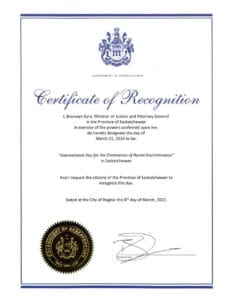International Day for the Elimination of Racial Discrimination
March 21, 2023 On March 21, 1960, police opened fire on a peaceful demonstration against apartheid “pass laws” in Sharpeville, South Africa. Sixty-nine people were killed, 180 more were injured. Most were shot in the back as they fled to escape the violence.
On March 21, 1960, police opened fire on a peaceful demonstration against apartheid “pass laws” in Sharpeville, South Africa. Sixty-nine people were killed, 180 more were injured. Most were shot in the back as they fled to escape the violence.
The international reaction to the “Sharpeville Massacre” was swift. Countries around the world condemned the killings and called for change. On April 1, the UN Security Council passed a resolution not only condemning the massacre, but also calling for the South African government to eradicate its policy of apartheid. In May, the UN General Assembly declared apartheid to be a violation of the UN Charter.
Six years later, in 1966, the UN proclaimed March 21 to be the International Day for the Elimination of Racial Discrimination. Canada was one of the first countries to support the proclamation and, in 1989, the Government of Canada officially launched its annual March 21 Campaign
Each year since then, on this date, people in Saskatchewan and throughout Canada have joined in a worldwide chorus to reject racism, discrimination, and hate in all their forms. Yet, despite widespread efforts, the struggle to eradicate racial discrimination continues.
Racism remains a reality on every continent, in every country and community.
Saskatchewan is not immune. Far too many people in this province face discriminatory behaviour because of the colour of their skin, their background, or their faith.
This needs to change.
Under The Saskatchewan Human Rights Code, 2018, it is illegal for any employer, educational institution or service provider under provincial jurisdiction to discriminate on the basis of race or perceived race, colour, ancestry, nationality, place of origin, or religion in schools, housing, public services, contracts, publications, or on the job.
For the past 50 years, the Commission has been dedicated to upholding the law and enforcing the principles of the Code to advance equality, protect individuals and groups from discrimination, and provide human rights education for people in Saskatchewan.
Education has an essential role to play in addressing and eliminating racial discrimination. If a person can be taught to hate, they can also be taught to love, to empathize, to understand and respect others.
Respect is paramount. Human rights are an acknowledgement that, among other rights, individuals of all colours, races, ancestries, and nationalities must be respected for who they are – as people and as members of the human family.
We are all members of the same human family. As such, we each have a responsibility to listen closely, speak out loudly, and act decisively whenever or wherever we witness racism, discrimination, or hate. Not just today, on the International Day for the Elimination of Racial Discrimination, but every day.
Together, we must take a stand against those who seek to divide us. We must speak out as one against racial discrimination. We must embrace diversity. And we must remain committed to building a fairer, safer, more equitable and inclusive province for everyone.

Barry E. Wilcox, K.C.
Chief Commissioner
